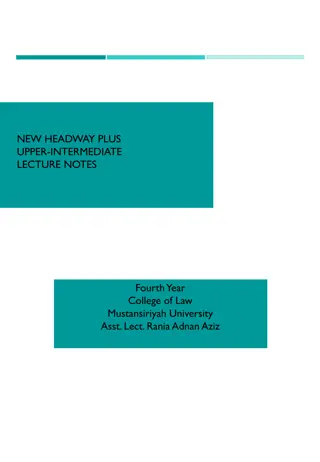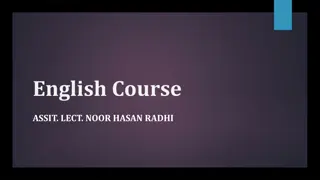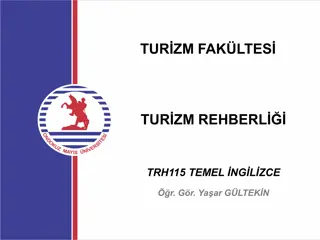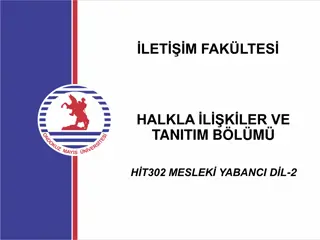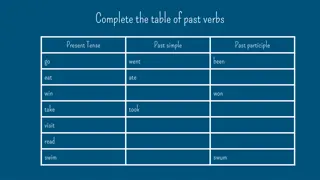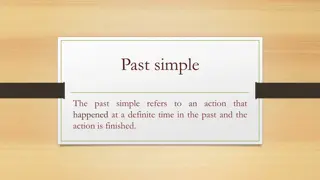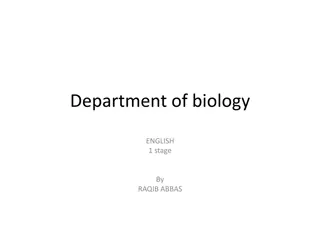Understanding Past Perfect Tense in English Grammar
Past Perfect Tense is used to denote actions that were completed before another action occurred in the past. It is formed using the auxiliary verb "had" followed by a past participle. Examples of affirmative, negative, and question forms are provided to illustrate usage. The tense helps in sequencing events and highlighting the order of actions in the past.
Download Presentation

Please find below an Image/Link to download the presentation.
The content on the website is provided AS IS for your information and personal use only. It may not be sold, licensed, or shared on other websites without obtaining consent from the author. Download presentation by click this link. If you encounter any issues during the download, it is possible that the publisher has removed the file from their server.
E N D
Presentation Transcript
Department of biology ENGLISH 1 stage By RAQIB ABBAS
Past Perfect Tense The past perfect tense is used to indicate an action that was completed before another action took place in the past. It is formed by using the auxiliary verb "had" followed by the past participle of the main verb. For example: S + had + P.P + C She had finished her homework before going to bed. Before I arrived, they had already eaten dinner. He had forgotten his keys after locking the door. They had already left by the time I arrived. He had read the book before watching the movie adaptation. By the time we reached the restaurant, they had already closed. I had never seen such a beautiful sunset before visiting that beach. They had lived in the city for ten years before moving to the countryside.
Negative To form the past perfect negative, we use the auxiliary verb "had" followed by "not" (contracted as "hadn't") and then the past participle of the main verb. They hadn't finished their homework before the party started. She hadn't left the office by the time you arrived. We hadn't completed the project before the deadline. He hadn't eaten breakfast when you called him. You hadn't visited Paris before you went to Rome. They hadn't finished the race before the rain started. She hadn't heard the news before you told her. He hadn't booked his tickets before the concert was announced. They hadn't discussed the project before the meeting began. You hadn't packed your bags before the trip was canceled.
Question To form a past perfect question, we use the auxiliary verb "had" followed by the subject and then the past participle of the main verb. Had you finished your dinner before the guests arrived? Had he left the office before you called him? Had they cleaned the house before their parents came home? Had you already packed your bags before the trip was canceled? Had they discussed the project before the meeting began? Had she completed the application before the deadline? Had you visited the museum before it closed for renovations? Had they prepared the presentation before the conference started? Had he returned the book to the library before it was due?







